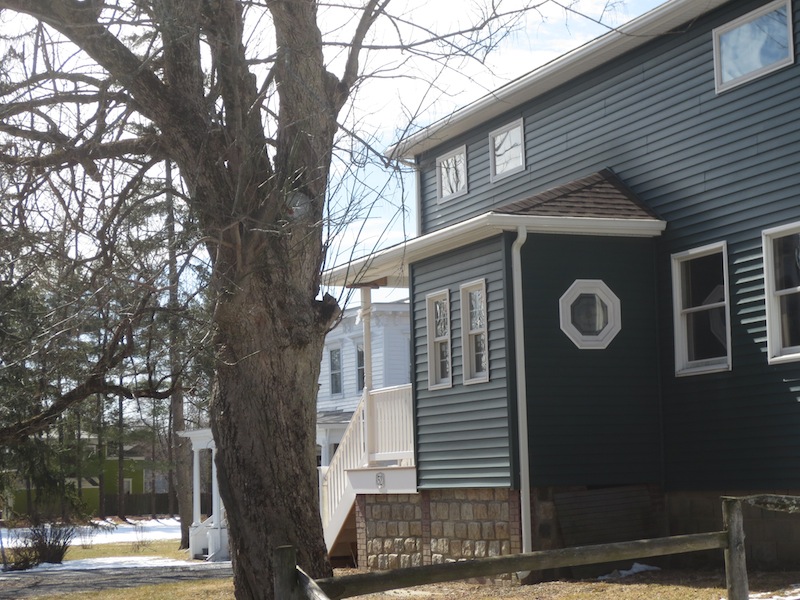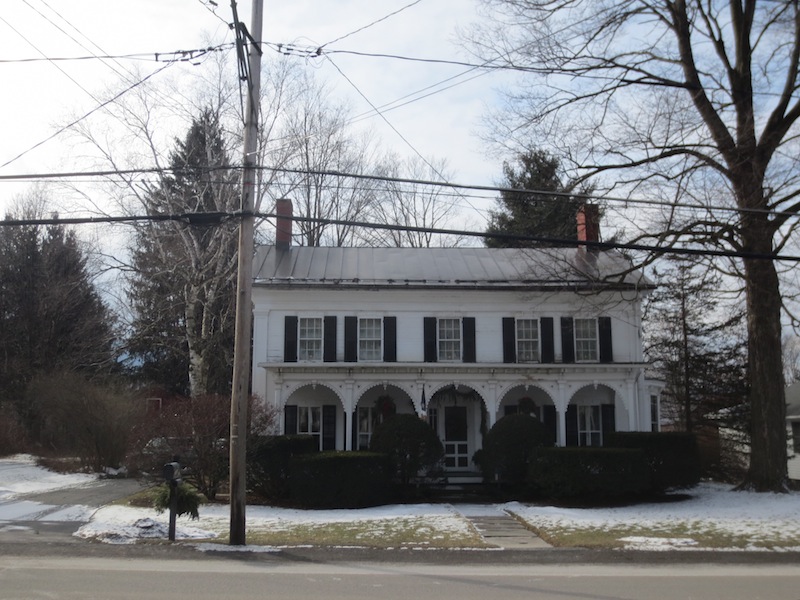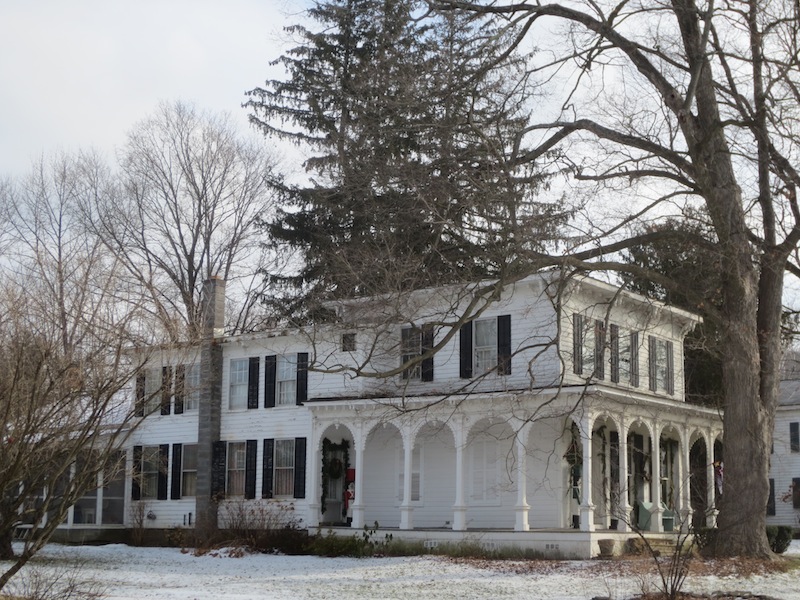Meandering along the roads of upstate New York, one encounters many examples of modern elements added onto older homes. While some look at them as improvements, others as desecrations. 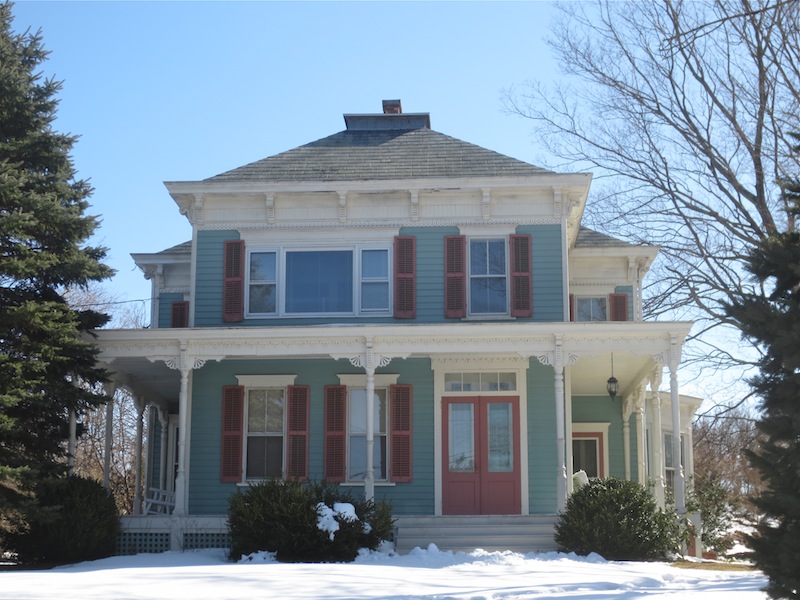
A large picture window inserted into the façade of an Italianate farmhouse enables the owners to enjoy the view and lets in light, but to the purist, ruins the authentic charm of the place.
Homes whose early porches and windows are replaced with more modern ones, can add points for insulation and practicality for some, while subtracting them on stylistic grounds, to others.
I was driving through Middleburgh on a grey winter’s morning not too long ago. Although the village definitely has a faded air about it, causing many to pass right through, its solid stock of unaltered 19th century homes is worth a second look. It was on this most recent ride through town that I noticed that its fairly intact housing stock was perhaps not as intact as it first appeared to modern eyes. The following three examples highlight modern improvements added over a century ago to earlier houses.
The first, a classic, white, five bay symmetrical greek revival had its solid, heavy cornice and pilasters lightened with a porch featuring whimsical arches added during the romantic era. Directly across the street, the same detail is found on a porch wrapping around two sides of an Italianate residence.
I wonder if in the owners of the greek revival saw the modern house going up across the street, and felt the same details might enliven the “dowdy” simplicity of their home built a couple of decades earlier.
Next door, the owners of similar Greek revival house were probably mulling the same conundrum at some point.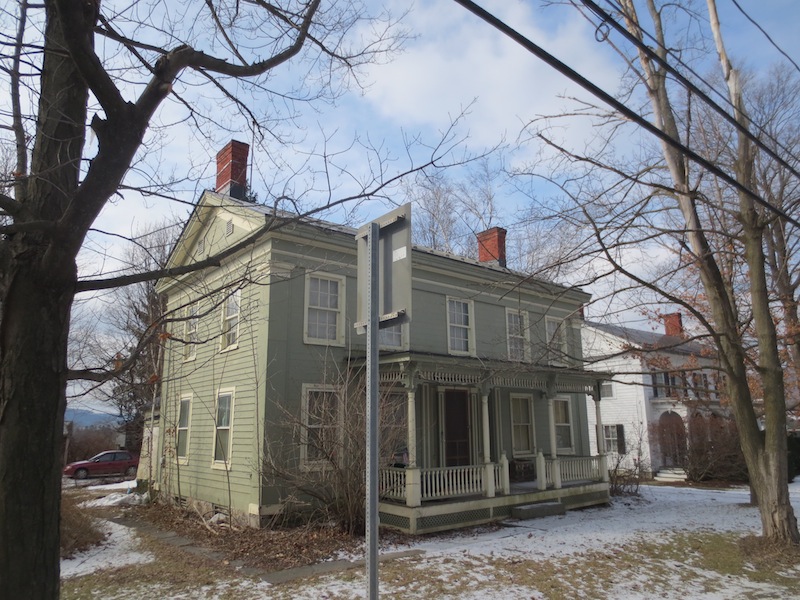
They also added a “modern” porch, but in a very different style. The turned balusters and decorative wooden elements of theirs are more in line with later “stick style” Victorian and Queen Anne homes built in newer sections of the town.
Towards the edge of the village, this classic temple front Greek revival was also “freshened up” in the mid 1800’s.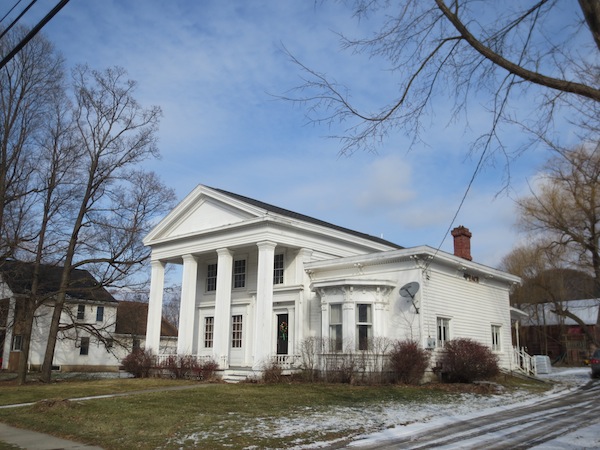

I find all of these later improvements onto earlier homes welcome eclectic additions of texture, and interesting reflections of their respective histories. I wonder though if back in the day when these modern touches were first applied, if passersby nodded happily, thinking “someone had finally modernized that old place”, or shook their heads, muttering, how could the ruin that fine old home?

